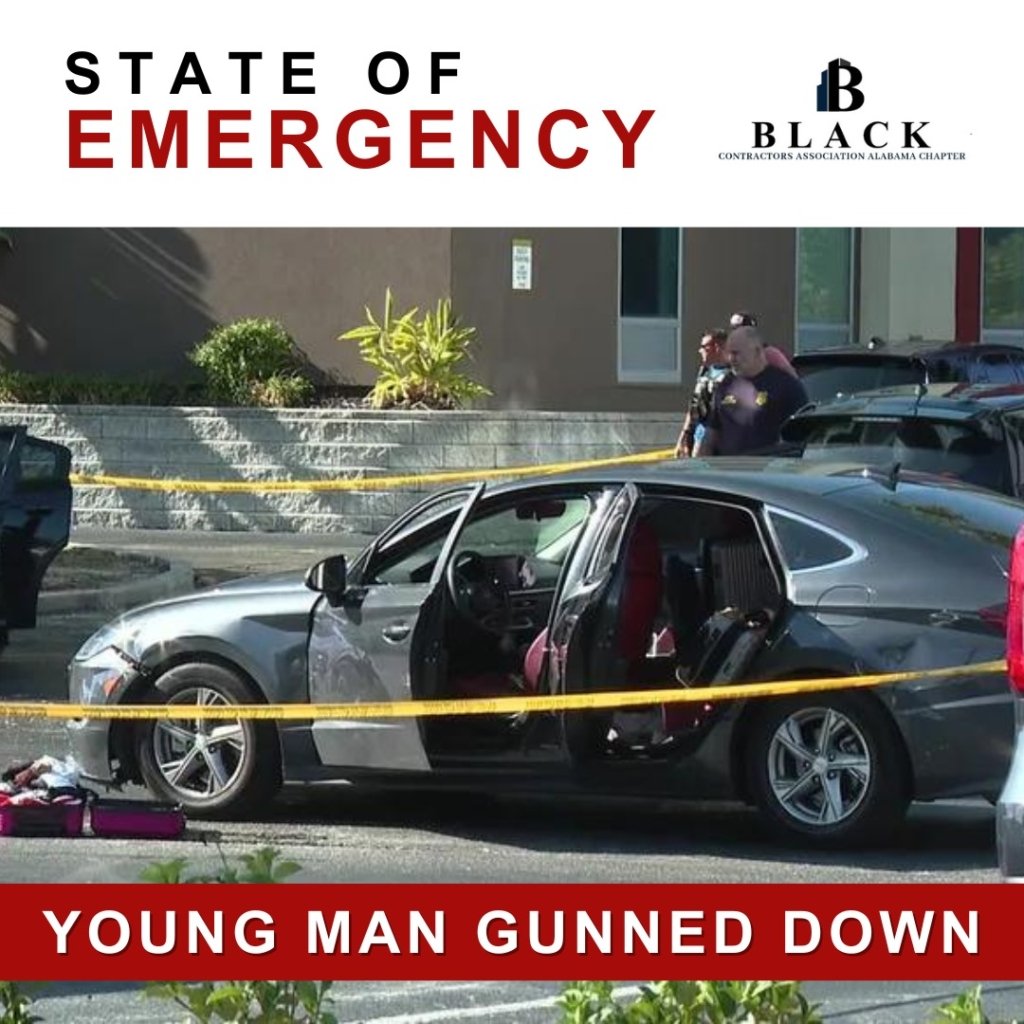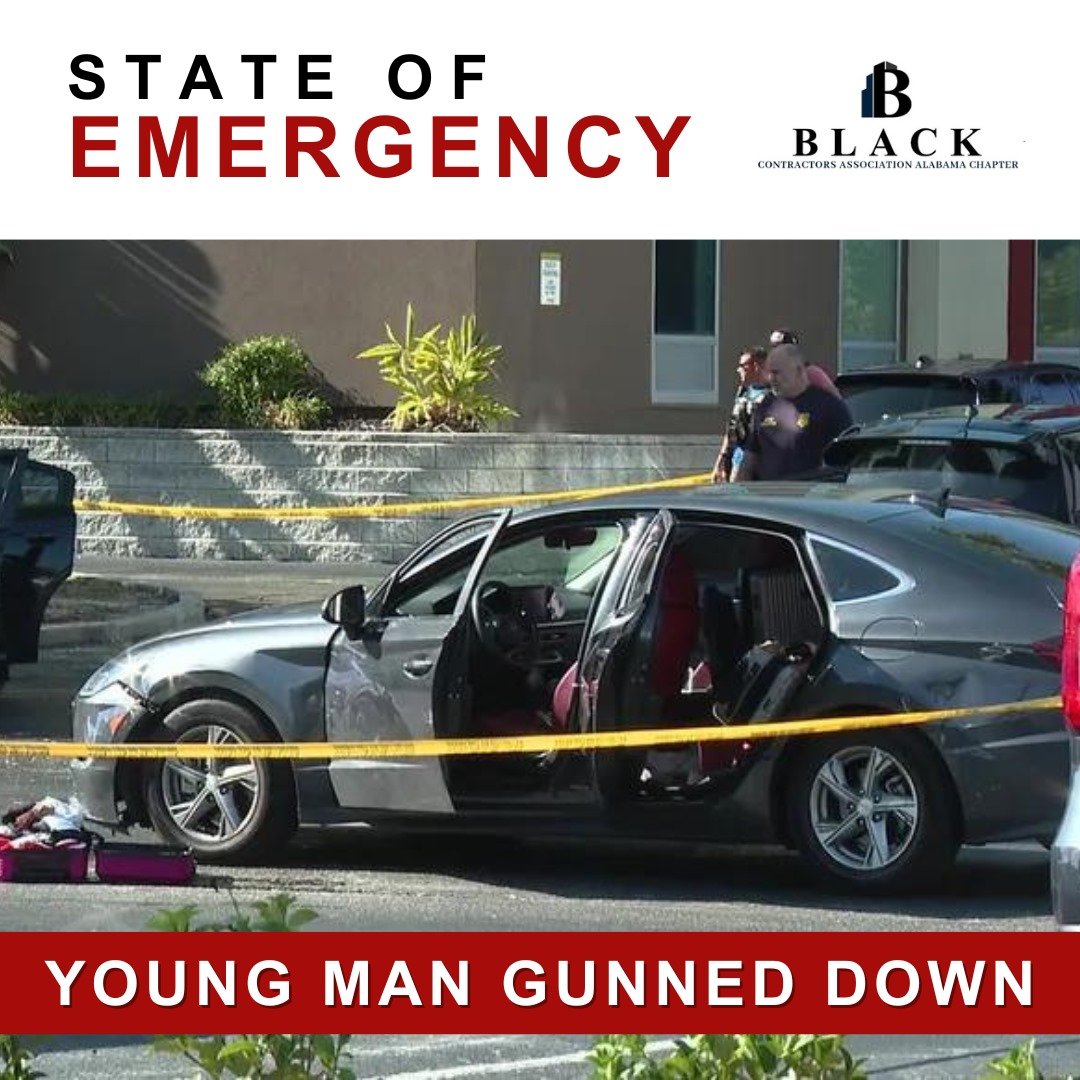
In the heart of Birmingham, Alabama, and across cities in the United States, communities are gripped by a crisis of violence and despair. Shocking statistics and heart-wrenching stories paint a grim picture: every week, another young life is brutally cut short by senseless violence. This cycle, fueled by diss music and street rivalries, exacts a devastating toll, leaving many young men and women without a future, hope, or escape—many not even reaching age 26.
The stark reality is that in some neighborhoods, the sound of gunfire is as common as the laughter of children. Front porches and street corners have turned into memorials, adorned with candles and pictures of lives lost too soon. Parents live in a constant state of anxiety, fearing that their child might be the next victim of this relentless violence.
Communities are trapped in a state of emergency, where fear and tension are the daily norms. Local businesses, once thriving, now struggle to keep their doors open as customers stay away, afraid of the escalating danger. Schools, instead of being safe havens for learning and growth, are often on lockdown, with students and teachers navigating the trauma of lost classmates and the omnipresent threat of violence.
Innocent bystanders, including children, are caught in the crossfire of gang-related shootings, their lives forever altered by stray bullets. The cycle of violence perpetuates itself as young people, feeling they have no other options, are drawn into gangs for a sense of belonging and protection. This crisis isn’t just claiming lives; it’s eroding the very fabric of these communities, breeding a pervasive sense of hopelessness and despair.
The dire situation calls for urgent and comprehensive intervention. It’s a state of emergency that demands immediate action from all sectors of society to stem the tide of violence and offer a beacon of hope to those trapped in its grip.
Personal Stories and Quotes:
- Detraio Deshawn Whorton, mother, Birmingham, AL: “After hearing ‘Your son didn’t make it,’ while you have been waiting on an update is a feeling I don’t wish on any mother. I didn’t know what to do. I had never planned a funeral before, let alone one for my son.”
- Shelby Brashier’s mother, Chandler, AZ: “My daughter, Shelby, was taken from me on June 25, 2024, at the tender age of . She was a bright light in my life, and her smile could light up a room. I’m still trying to come to terms with the loss, but I know I must keep fighting for justice and peace in our community, so no other mother has to go through this pain.”
- Ram’s mother, Buffalo, NY: “I lost my son, Ram, on June 21, 2024. He was a kind soul, and his laughter could fill a room. I remember the day like it was yesterday. I got the call, and my world came crashing down. I screamed, I cried, I begged God to take me instead. But it was too late. My baby was gone.”
The Urgency of Now: Facing the Statistics
The urgency of this mission cannot be overstated. Birmingham finds itself tragically ranked among the top ten cities nationwide for all the wrong reasons—statistics that underscore the gravity of the situation. Each day without action risks more young lives. The cycle of violence demands immediate, concerted efforts from every sector of the community. BCAAC grasps this urgency and is taking bold strides to combat it.
We have reached out to some of the nation’s leaders in helping to bring the much-needed programs and services to the communities most affected by the violence and unrest they experience every day. We will be working and collaborating with these organizations to break and impact our citizens positively. Much of the work involves directly engaging young men where they are, listening to their stories, and understanding their challenges firsthand. BCAAC meets them with open ears and open hearts, aiming to build trust and provide the support they need to thrive. We are committed to doing our part to build better communities.
Another perspective often overlooked in discussions about urban violence is the impact on mental health. The constant exposure to violence has severe psychological consequences for residents, particularly young people. The trauma of witnessing or being a victim of violence leads to a range of mental health issues, including PTSD, anxiety, and depression. These mental health challenges, if unaddressed, can perpetuate the cycle of violence, as individuals may turn to substance abuse or criminal behavior as coping mechanisms. Community mental health services are critically underfunded, leaving many without access to the care they desperately need. BCAAC recognizes this gap and advocates for integrating mental health support into their outreach and development programs. By addressing both the immediate needs and the underlying causes of violence, they aim to foster a holistic approach to healing and rebuilding communities.
Historical Context:
This crisis is not new. Decades of systemic issues such as economic disenfranchisement, redlining, and the war on drugs have all contributed to the current situation. Understanding these roots is crucial for developing effective, long-term solutions.
Education, mentorship, and industry insight lie at the heart of BCAAC’s strategy moving forward. Collaborating with local schools, community centers, and allied organizations, we aim to meet young people where they are. Through forthcoming workshops, apprenticeships, and on-the-job training, BCAAC seeks to empower the next generation with the tools they need to flourish.
Looking Ahead: Tackling the Crisis Together
As we conclude this first part of our four-part series, we look ahead to the next critical steps in tackling the violence plaguing our communities. In the upcoming segment, we will delve deeper into the challenges and solutions with insights from experienced organizations that are shaping policy and developing impactful programs, and offering unique perspectives on the work that needs to be done to bring about real change. Join us as we discuss their tireless efforts and the crucial steps required to build safer, stronger, and more hopeful communities. Stay tuned for a compelling conversation that promises to shed light on the path forward.


